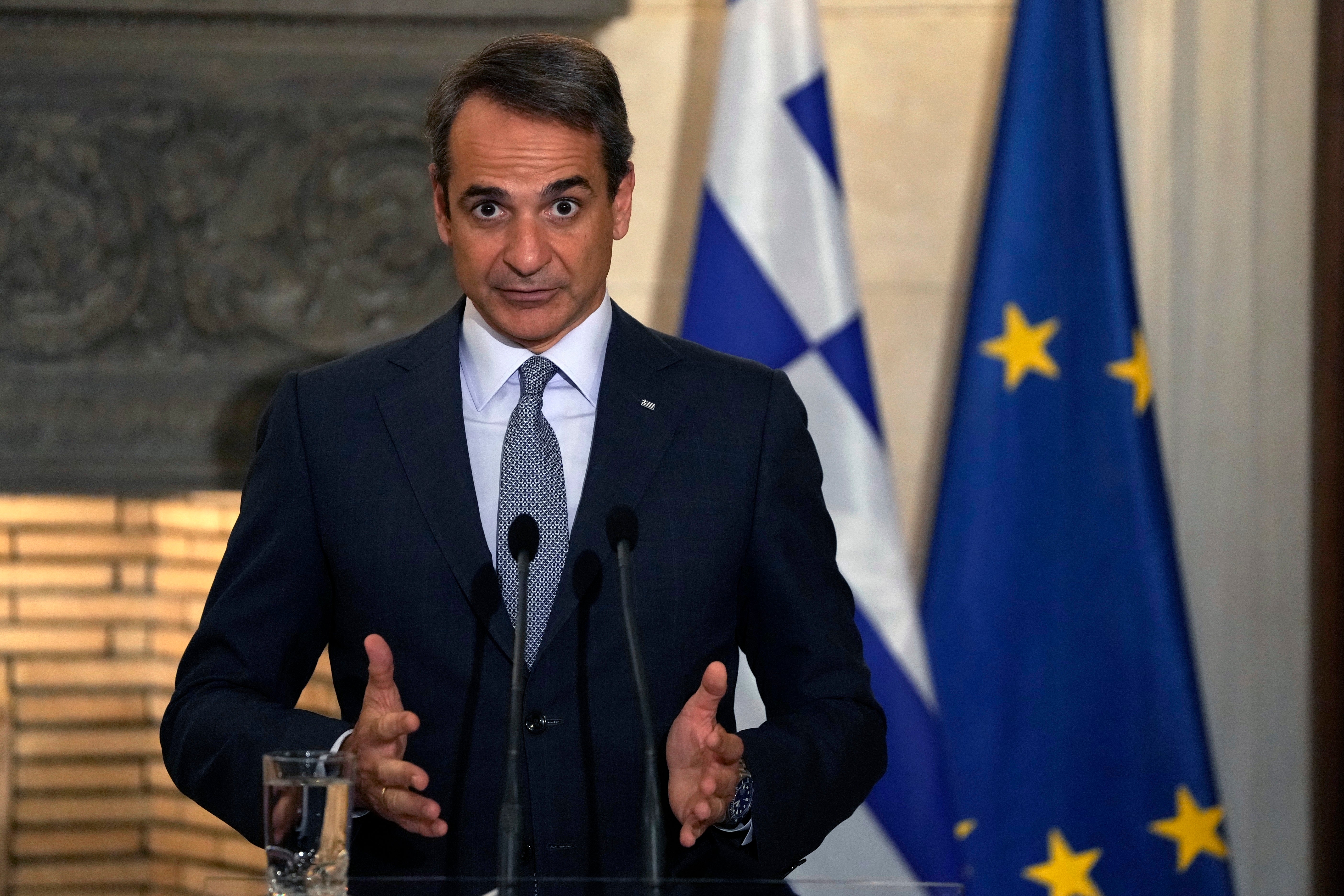Greek PM 'unapologetic' in defending Greek borders
Greece’s prime minister says he is “unapologetic” in defending Greece’s borders in the face of uncontrolled migration attempts, but insists his country is doing so in a manner that respects human rights

Your support helps us to tell the story
From reproductive rights to climate change to Big Tech, The Independent is on the ground when the story is developing. Whether it's investigating the financials of Elon Musk's pro-Trump PAC or producing our latest documentary, 'The A Word', which shines a light on the American women fighting for reproductive rights, we know how important it is to parse out the facts from the messaging.
At such a critical moment in US history, we need reporters on the ground. Your donation allows us to keep sending journalists to speak to both sides of the story.
The Independent is trusted by Americans across the entire political spectrum. And unlike many other quality news outlets, we choose not to lock Americans out of our reporting and analysis with paywalls. We believe quality journalism should be available to everyone, paid for by those who can afford it.
Your support makes all the difference.Greece’s prime minister says he is “unapologetic about defending" Greece’s borders in the face of uncontrolled migration attempts, but insists his country is doing so in a manner that respects human rights.
Greece has come under strong criticism from rights groups, migrants and some European officials over allegations that its coast guard carries out so-called pushbacks — the summary deportation of people arriving on Greek territory without allowing them to apply for asylum. Greek officials have repeatedly denied the allegations, despite considerable indications such practices occur.
The country has been one of the most popular routes for decades for smugglers to get people into the European Union with the vast majority attempting the brief but often-dangerous sea crossing to Greek islands from the nearby Turkish coast.
But Kyriakos Mitsotakis’ conservative government has cracked down on migration, particularly after it saw a crush of people trying to cross its northeastern land border with Turkey in March 2020, after Turkey announced its borders into the European Union were open.
“I am unapologetic about defending our borders. We should not forget that back ... in March 2020, Turkey instrumentalized the migration issue and actively encouraged and facilitated tens of thousands of people to try to cross into Greece,” Mitsotakis said Thursday.
“We said no. We defended our land border. We are defending our sea border, but we’re doing it with full respect to human rights, putting the protection of people at sea always as a first priority,” he said, speaking at an Athens Democracy Forum conference in the Greek capital.
“I can see no conflict between vigilantly defending our borders and, yes, intercepting boats at sea while at the same time behaving in a totally humanitarian manner and taking care of those people whose lives are at risk,” he said.
Mitsotakis said he would be traveling to the eastern Aegean island of Samos on Friday, to inaugurate a new camp built there to house asylum-seekers. The previous camp, on the fringe of the island’s main town of Vathy, was Greece’s most overcrowded refugee camp, with thousands living in a shanty-town of tents and makeshift shacks built outside the perimeter. It was shut down earlier this month, with its residents moved to the new facility.
But some rights groups have described the new camp, where access is strictly controlled, as akin to a prison, with its high fences and more remote location in the hills of Samos.
Residents can still leave the camp during the day, and authorities have said they are providing buses to and from the main town several times a day. Access to the facility is through electronic key cards and fingerprints.
Mitsotakis noted the number of people arriving on Greek islands from Turkey has fallen by about 90% over the past two years, and said Greece had “every interest in working with Turkey to contain illegal flows of migrants and to eradicate the smuggling networks that prey on vulnerable people.”
The reduction in arrivals, he said, was “an indication that we’re actually breaking down that, quote unquote, business model.”
Turkey, however, “can do more in this direction,” he said, noting Greece’s neighbor was not readmitting people who arrived on Greek islands from Turkey but whose asylum applications had been rejected, despite having agreed to do so in a deal with the EU. Nearly 2,000 people currently in Greek island camps could be returned to Turkey under this agreement, he said.
“I think it would be a very good indication by Turkey that they’re actually looking to improve the level of cooperation between Europe ... and Turkey on the issue of migration,” he said.
The Greek prime minister also decried what he called a “lack of European solidarity” on the issue of migration. The bloc has failed to agree on a joint migration and asylum policy because “some countries simply consider this not to be their problem at all, ... placing all the burden on frontline states,” Mitsotakis said.
“This is unfair. This is not just a question of money. Of course, we receive money from Europe to build our facilities, but we should really see more solidarity.”